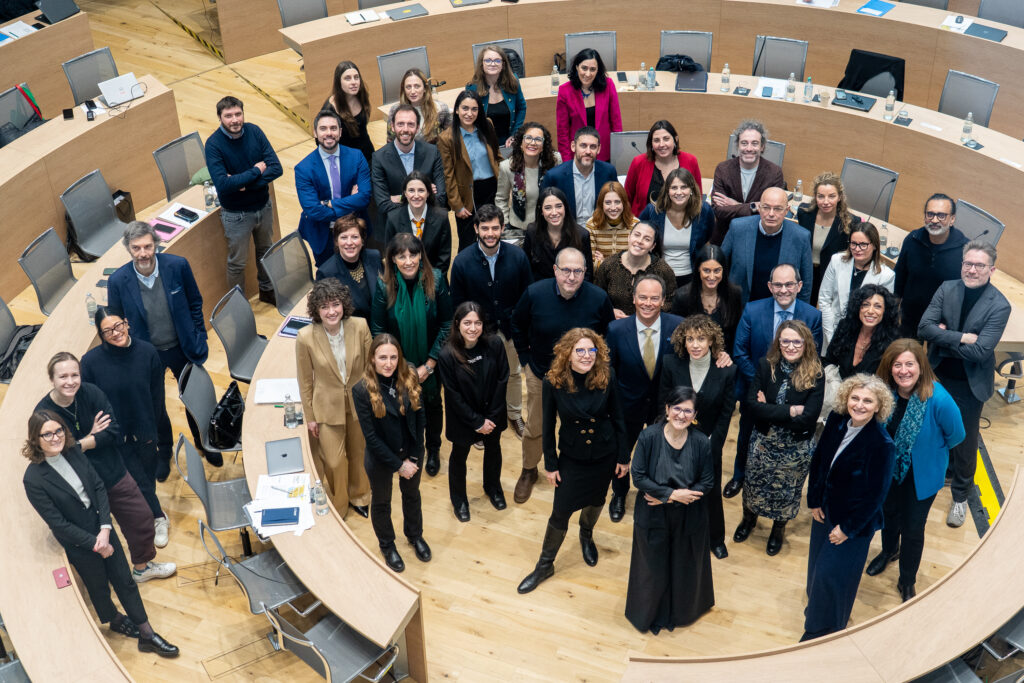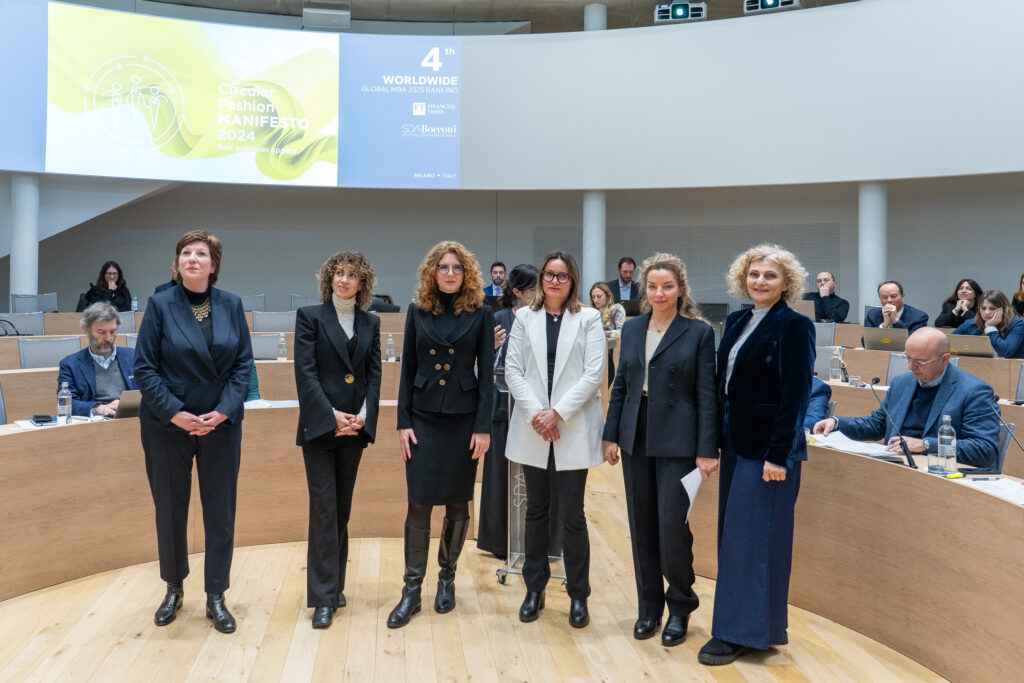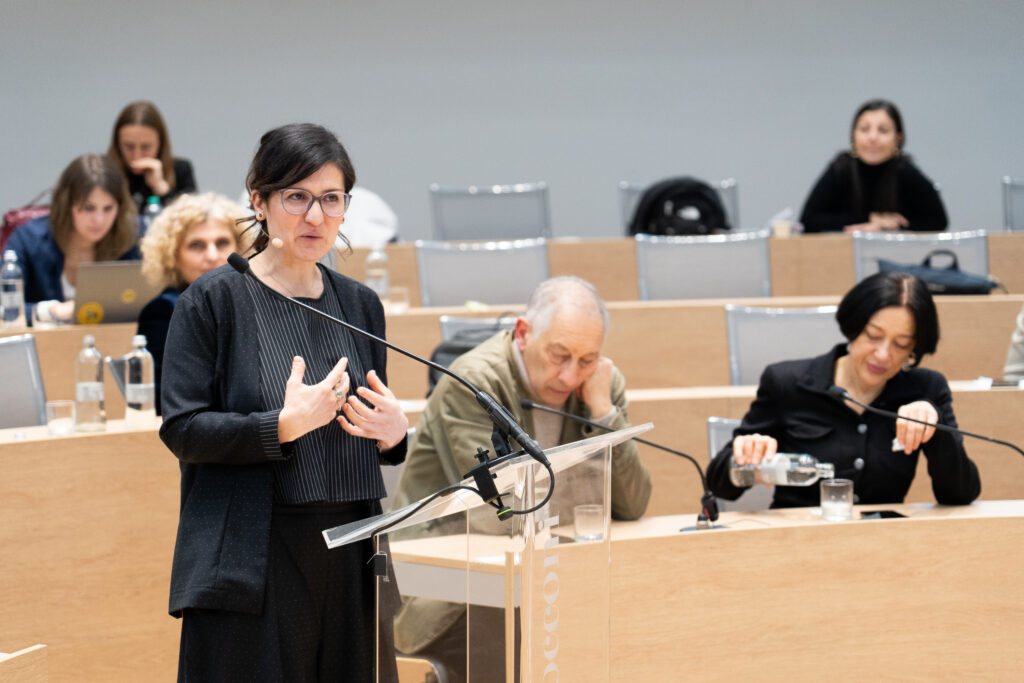B/SAMPLY Joins the Monitor for Circular Fashion: Driving Sustainability in the Industry
A key accelerator for the industry’s transition towards circular business models

B/SAMPLY is proud to be part of the Monitor for Circular Fashion (M4CF), a multi-stakeholder research initiative led by SDA Bocconi’s Sustainability Lab. Our participation reinforces our commitment to driving sustainability and innovation within the fashion industry by collaborating with key players across the value chain to support the transition toward a circular economy. On February 17, the Monitor for Circular Fashion 2024/2025 Report was presented at SDA Bocconi’s Milan campus during the annual event dedicated to circularity in fashion. This high-level gathering brought together industry experts, policymakers, and leading brands to discuss the strategies, challenges, and opportunities that companies face in light of evolving European regulations and increasing consumer demand for sustainable products and business models.
The Monitor for Circular Fashion serves as a key accelerator for the industry’s transition towards circular business models. By fostering collaboration among fashion brands, suppliers, and service providers, it provides companies with concrete tools and key performance indicators to navigate new regulatory and market challenges. The latest 2024/2025 report, available for download, offers data-driven insights into the progress of M4CF’s partner companies in areas such as Ecodesign, Biodiversity, Social Impact, and Governance, aligning with the latest European legislative developments. The findings highlight the urgency for businesses to integrate circular practices, emphasizing the role of supply chain transparency, resource efficiency, and responsible sourcing. Companies must adapt quickly to maintain compliance and secure their position in a rapidly evolving market where circularity is becoming a competitive advantage.

Key Discussions: Ecodesign & Technological Innovation
Among the event’s focal points was Ecodesign, a critical lever for sustainability that is gaining increasing relevance in the fashion industry. Experts explored its costs, benefits, and implementation, shedding light on how brands can embed sustainability from the design stage—choosing materials, production processes, and product lifecycle strategies that minimize environmental impact. The report underscored the need for clearer cost-benefit analyses and industry-wide collaboration to help companies advance their circularity strategies effectively.
Another major discussion centered around technologies enabling circularity. According to M4CF’s partners, the most relevant technologies for the next three years include advanced recycling solutions, traceability systems, and Digital Product Passports (DPPs). Additionally, AI adoption for circular transition is expected to grow by 31%, followed by a 19% increase in online platforms for circularity and a 12% rise in platforms dedicated to traceability. These technologies are set to play a crucial role in helping companies meet compliance requirements, enhance transparency, and drive efficiencies in resource use.
Institutional and policy frameworks were also a major theme at the event, with representatives from the European Commission, EURATEX, and UNECE providing valuable insights into the evolving regulatory landscape. Discussions covered upcoming EU textile regulations, strategies for aligning business models with sustainability goals, and key initiatives like the Circular Fashion Manifesto. A key takeaway was the importance of harmonizing policy, business strategies, and technological innovation to accelerate the industry’s circular transformation while ensuring economic viability.
As a proud participant in the Monitor for Circular Fashion, B/SAMPLY is dedicated to supporting fashion companies in integrating sustainable solutions. By facilitating collaboration among ingredient brands, fashion brands, suppliers, and service providers, we contribute to the advancement of circular practices across the industry. Our platform empowers brands to improve supply chain traceability, streamline digital product data management, and foster responsible material sourcing—key pillars for achieving a more sustainable and transparent industry. Through our participation in M4CF, we aim to bridge the gap between innovative technology and sustainability, ensuring that businesses have the tools they need to thrive in the circular economy.
We look forward to continuing our active involvement in this initiative, working alongside our partners to shape the future of sustainable fashion. Stay tuned for more updates as we drive forward in this essential transformation.

